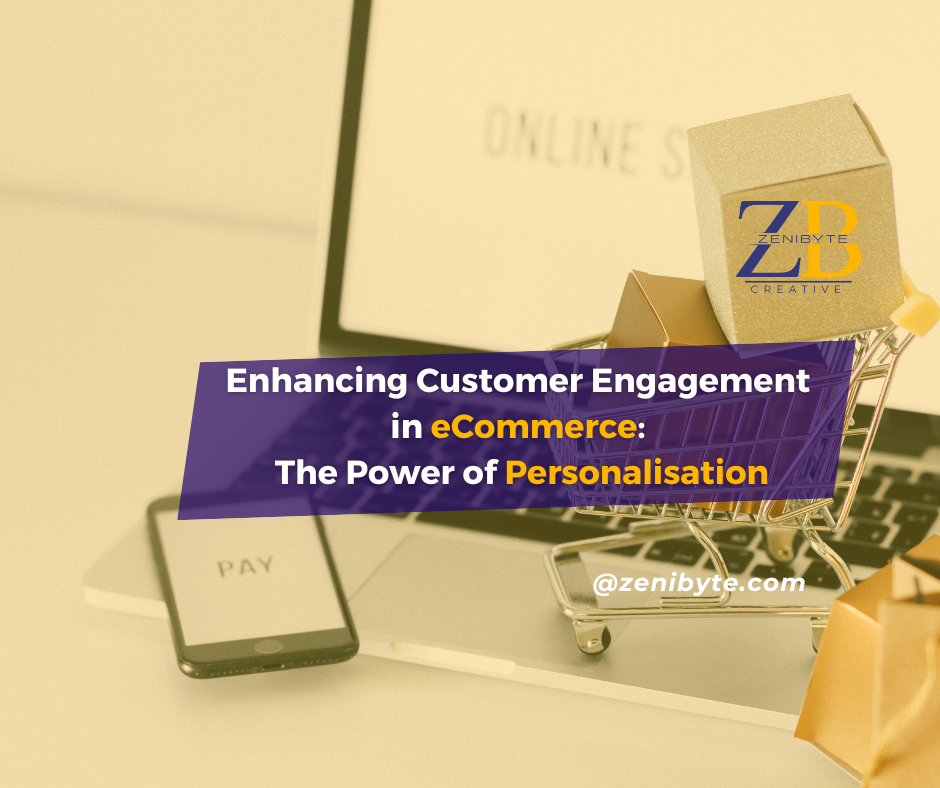


Zenibyte Creative
Enhancing Customer Engagement in eCommerce: The Power of Personalisation
Why Personalisation Matters
Personalisation in eCommerce involves
tailoring the shopping experience to individual customers based on their
behavior, preferences, and past interactions. This approach has several key
benefits:
- **Increased Customer Loyalty:** Personalised
experiences make customers feel valued, fostering loyalty and encouraging
repeat purchases.
- **Higher Conversion Rates:** Relevant
product recommendations and targeted marketing messages can significantly boost
conversion rates.
- **Improved Customer Satisfaction:**
Personalised interactions can enhance customer satisfaction by providing a
seamless and enjoyable shopping experience.
Technologies Enabling Personalisation
Several technologies are crucial for
implementing effective personalisation strategies in eCommerce:
1. **Artificial Intelligence (AI) and Machine Learning:**
AI and machine learning algorithms analyse customer data to predict preferences and behaviors, enabling personalised product recommendations and marketing messages.
2. **Customer Relationship Management (CRM) Systems:**
CRM systems store detailed customer information, allowing businesses to segment their audience and deliver tailored experiences based on individual profiles.
3. **Behavioral Analytics:**
Tools that track and analyse customer behavior on your website help identify patterns and preferences, informing personalised content and offers.
4. **Email Marketing Platforms:**
Advanced email marketing platforms allow for dynamic content and personalised email campaigns based on customer interactions and purchase history.
Implementing Personalisation Strategies
Here are some practical steps to implement personalisation in your eCommerce store:
1. **Collect and Analyse Customer Data:**
Gather data from various sources such as purchase history, browsing behavior, and customer feedback. Use this data to create detailed customer profiles.
2. **Segment Your Audience:**
Divide your customer base into segments based on shared characteristics or behaviors. This allows you to deliver more relevant content and offers to each group.
3. **Personalise Product Recommendations:**
Use AI-powered recommendation engines to suggest products based on individual customer preferences and past purchases.
4. **Tailor Marketing Messages:**
Customise email campaigns, social media ads, and other marketing messages to address the specific interests and needs of different customer segments.
5. **Optimise the Shopping Experience:**
Personalise the on-site experience by showing relevant content, offers, and navigation options based on customer behavior and preferences.
Case Study: Zenibyte’s Personalisation Success Story
At Zenibyte, we recently worked with an eCommerce client to implement a comprehensive personalisation strategy. Here’s how we did it:
- **Challenge:** The client wanted to increase customer engagement and conversion rates by providing a more personalised shopping experience.
- **Solution:** We implemented AI-powered product recommendations, personalised email campaigns, and behavior-based on-site content.
- **Results:** The client saw a 25% increase in conversion rates and a 30% boost in customer retention within the first six months.
Conclusion
Personalisation is a powerful tool that can transform the way customers interact with your eCommerce store. By leveraging advanced technologies and implementing targeted strategies, you can enhance customer engagement, increase conversions, and foster long-term loyalty.
Contact Us
Zenibyte Creative
Zenibyte is a leading web and mobile app development company in the UK.